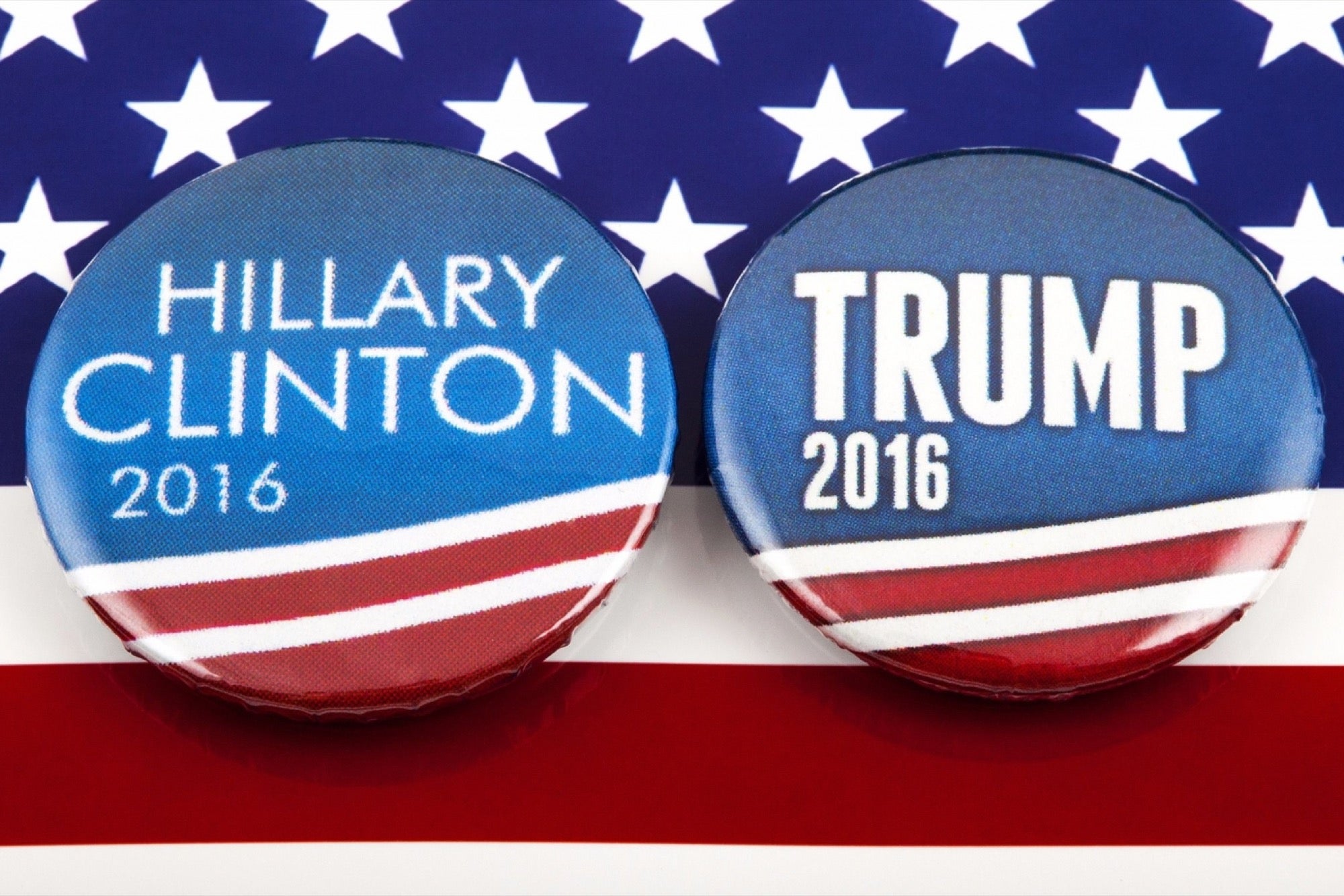Why It's OK To Let Donald Trump Into the WorkplaceTalking politics at work is often forbidden, but it might help with collaboration between employees.
ByDavid Niu•
Opinions expressed by Entrepreneur contributors are their own.

Conventional wisdom says you shouldnever talk about politics in the workplace. After all, politics means conflict, and who needs more of that? It's difficult enough as it is for everyone on your team to get along without bringing deep-felt party loyalties into the mix.
But we look at it a bit differently here at TINYpulse. Today, greater inclusion and collaboration is mission-critical. Allowing political discussion is part of providing a workplace that helps employees understand different points of view. We expect that the mature adults who work for us are capable of having intelligent conversations about controversial topics, be it Hillary Clinton's emails or Donald Trump's tweets. Politics at work should be less about chest-thumping for a particular candidate or party and more about healthy debate.
Related:Politics and Work: 7 Guardrails for Leaders
Our researchhas found that employee satisfaction is very dependent on peers, with 71 percent of respondents saying satisfaction with their colleagues is the number one factor. Everyone wants to work with people they like. And once they've established those relationships, they'll be able to talk about politics within certain parameters.
Let's face it: During this election cycle, it's going to be difficult to avoid the subject. From candidates' outlandish behavior to everyone suddenly being interested in super-delegates and VP choices, this presidential race is at the front of people's minds. Instead of suppressing debate, let's talk about how to do it right. Here are some tips for successful political conversations at work.
1. Set some guidelines.
It's important that your employees know the boundaries on political discourse at the office. Some companies prohibit employees from bringing in or wearing campaign paraphernalia. Collecting money for a political cause at work is also unacceptable.
So whether your employees are feeling the Bern or want to make America great again, they can do that on their own time. You don't want anyone thinking that an employee is representing your company's political views.
To foster productive discussions, establish guiding principles for how to talk about politics. Here are some possible ways to go about it:
- Focus on the what, not the who.Ad hominem attacks won't lead to better understanding. Just like in marketing or product development, evaluating the quality of ideas should be central to the discussion of politics.
- It's okay to agree to disagree -- without being disagreeable.People have spent their entire lives formulating their political opinions. Coming to some kind of middle ground is possible, but not in every situation. Employees should be able to recognize and respect differences of opinion.
- Make a genuine effort to see the other person's point of view.Political dialogue should be just that -- dialogue. Make sure that you're fully invested in learning about the other person's perspective.
If you can't follow these principles, then it's best to leave the subject alone. But if you come to the conversation ready to listen, you might develop deeper bonds with your colleagues.
2. It's all about respect.
You know that debate you see on Facebook every day between two "friends" who happen to have different ideologies and are always at each other's throats? You want the opposite of that.
Related:The Real Reason You Should Never Talk Politics at Work
话语必须公民——时间。智慧的问题h discussing politics at work is when people jump on their soapbox and lecture their colleagues. At best this is an annoying morale killer, and at worst it's harassment. Hostile work environment policies apply to politics just like anything else.
3. People will have different opinions.
Just like any other topic, your employees will have different opinions about politics. And here's where the possibility for conflict comes in. It's best to limit political conversation to people you already get along with. And if the discussion becomes too heated or the timing's just not right, be ready to switch to a different topic or abandon the conversation altogether.
Related:Leave it in D.C.: 5 Ways to Rise Above Politics at Work
Many companies avoid the subject of politics because they don't want conflict among their employees. However, if political conversation has clear boundaries, it can increase the respect colleagues have for each other.President Franklin D. Roosevelt once said, "A government can be no better than the public opinion that sustains it." Informed citizens who are comfortable discussing their beliefs are the foundation of a functioning democracy.











